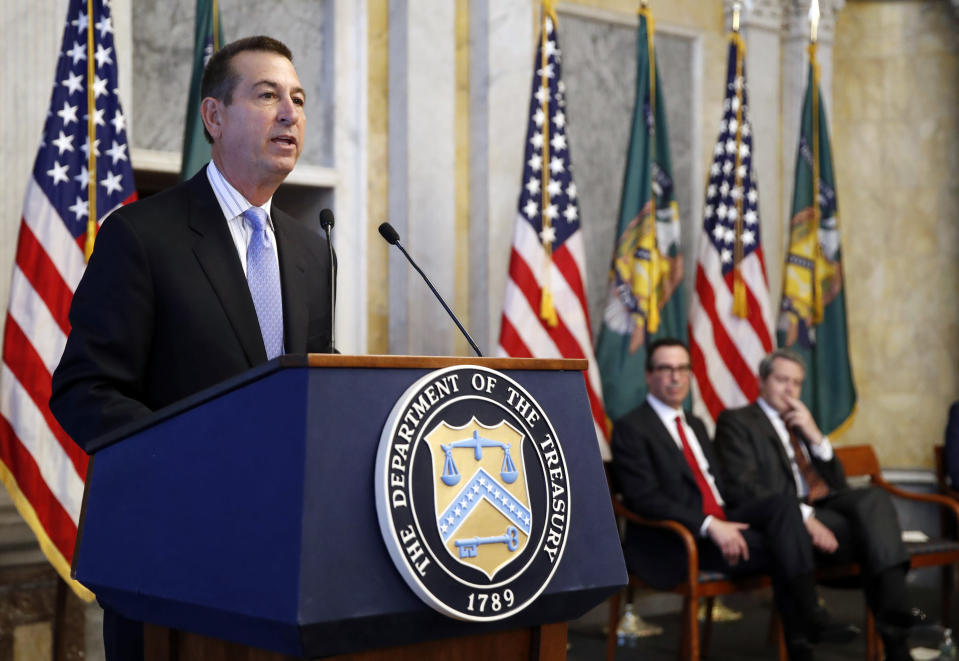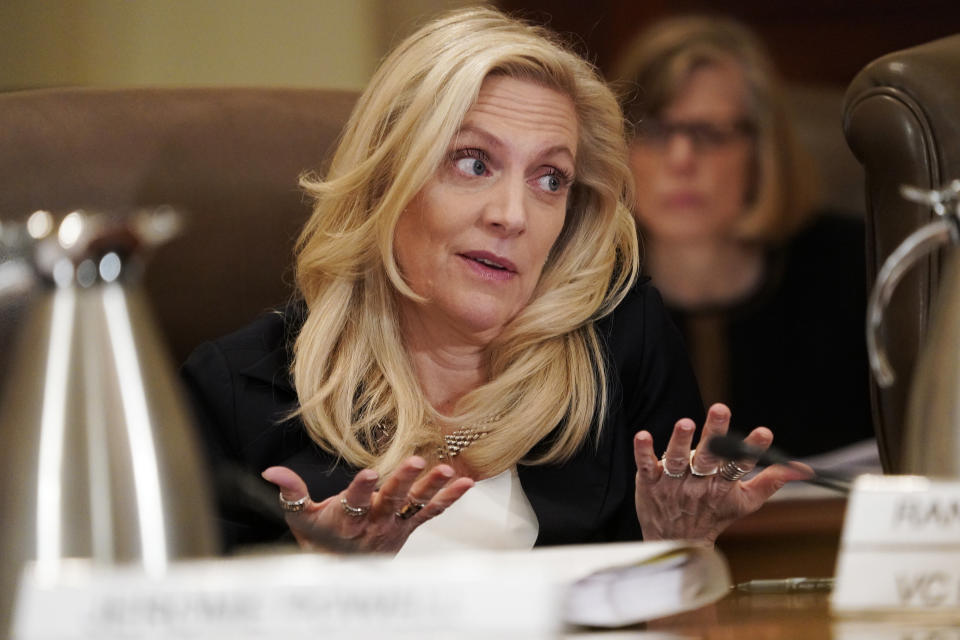Regulator tells banks to watch out for leveraged loans

One of the nation’s top banking regulators is discussing the risk of leveraged lending with bank boards and management, as questions loom over how vulnerable the economy is to risky corporate loans.
In a semiannual report of risk in the banking industry released Monday, the Office of the Comptroller of the Currency said it is challenging banks to evaluate the “potential effect on the financial system from originating and distributing weakly underwritten loans to leveraged borrowers.”
Leveraged loans, which are large sums of money lent to corporate borrowers with poor credit ratings, have been cited as a possible risk to the financial system in recent years. During the low-rate environment post-crisis, borrowers increasingly turned to leveraged loans to finance big mergers and acquisitions. But as countries reach all-time highs in terms of debt to GDP, former Fed Chair Janet Yellen and current Fed Governor Lael Brainard are among a growing list of people worried about the impact of a wave of corporate defaults on the broader economy.
The loans themselves are packaged into collateralized loan obligations that are carved up and bought by institutional investors, raising memories of the subprime consumer loans and mortgage-backed securities that brought the economy to its knees in 2007 and 2008. Those with less concern over leveraged lending counter that CLOs have historically low default rates and actually performed well during the crisis.

The head of the OCC, Joseph Otting, has said in the past that banks should have the right to “do what they want” with leveraged loans, as long as it does not affect their “safety and soundness.”
Still, the OCC is advising banks to understand their relationships in the leveraged loan market and the risks that those loans carry.
Borrower’s borrower
Banks are not the main lenders of leveraged loans; if they do originate the loan, they usually sell the loan to a nonbank entity that manages the relationship with the corporate borrower.
Nonbanks with enough capital are also electing to originate and underwrite their own loans, meaning that most of the leveraged lending risk is being held outside of the regulated banking industry.
Those nonbanks have the most control over the lending relationship, and have the clearest insight into whether or not companies are able to repay their loans on the promise of revenue growth or cost savings.
But how much due diligence should banks have over the lending standards of their nonbank borrowers?
Amid “elevated” risk of higher losses in a theoretical downturn, the OCC is now encouraging lenders to “evaluate whether their borrowers have critical suppliers or vendors that are highly leveraged, which may adversely affect a borrower’s business operations or ability to service debt in an economic downturn.”
Former Federal Deposit Insurance Corp. Chair Sheila Bair has suggested reform of the ways that banks interact with nonbanks in the leveraged loan space. Bair wrote on Yahoo Finance Monday that the “warehouse lines” of temporary loans to nonbanks enables the origination of leveraged loans.
“An argument against tightening standards over warehouse lines is that banks bear very little risk because their exposure is so short-term,” Bair wrote. “Perhaps. But the bank regulators have an over-arching obligation to maintain financial system stability, and if banks are facilitating irresponsible lending, then the regulators need to act.”
—
Brian Cheung is a reporter covering the banking industry and the intersection of finance and policy for Yahoo Finance. You can follow him on Twitter @bcheungz.
Minneapolis Fed's Kashkari: 'Monetary policy has been too tight'
Alice Rivlin, trailblazer in the economics field, dies at 88
Trump to Fed: Cut rates and help us win the trade war
Inflation expectations dip as Fed grapples with stimulating prices
What a higher education tech company tells us about a tightening labor market
Congress may have accidentally freed nearly all banks from the Volcker Rule

 Yahoo Finance
Yahoo Finance 
